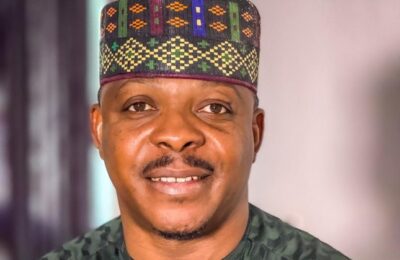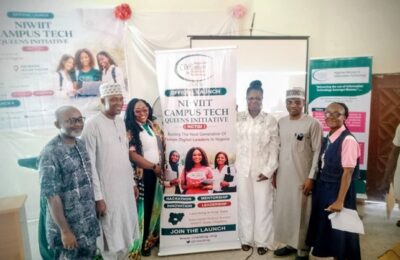As Nigeria commemorates two years since President Bola Ahmed Tinubu assumed office in May 2023, it is crucial to critically examine the successes, ongoing challenges, and pains experienced under his leadership. While Tinubu’s rise to power was met with high expectations, the realities of governance, economic management, and security have posed formidable hurdles, sparking widespread debate among stakeholders, analysts, and ordinary citizens.
Economic Policies: Promises and Realities
Inherited a fragile economy beset by inflation, currency devaluation, and dwindling foreign reserves, President Tinubu’s administration promised reforms aimed at economic stabilization through diversification, fiscal discipline, and attracting investments.
Economic Reforms and Policies
Several policies have been introduced to reshape Nigeria’s economic landscape, including:
Currency Policy Adjustments:
In 2023, the Central Bank of Nigeria (CBN) implemented measures to unify the exchange rate, aiming to attract foreign investment and stabilize the naira. However, these measures also triggered persistent inflationary pressures, eroding the purchasing power of ordinary Nigerians (CBN Annual Reports, 2023).
Fuel Subsidy Removal:
The government’s decision to remove fuel subsidies was intended to free resources for infrastructural development. While some economic analysts appreciated this move, it immediately led to inflation and increased transportation costs, adversely affecting vulnerable populations (World Bank Nigeria Economic Update, 2024).
Oil Sector Reforms:
Plans to diversify revenue sources, especially through reforms in the oil sector, were announced. Nevertheless, progress has been slow, with ongoing concerns about transparency and corruption, as highlighted by Transparency International’s Corruption Perceptions Index.
Economic Challenges and Recommendations
Despite these reforms, Nigeria’s economy remains under stress. The National Bureau of Statistics (NBS, 2025) reports inflation at 22.5%, with unemployment around 33%. Many citizens continue to grapple with rising living costs, and poverty remains alarmingly high.
Consolidated Recommendations:
- Focus on developing non-oil sectors like agriculture, manufacturing, and technology, with targeted policies and incentives for entrepreneurs.
- Expand social safety nets and welfare programs to cushion vulnerable groups against inflation and economic reforms.
- Strengthen institutions such as the EFCC and ICPC to enhance transparency, combat corruption, and ensure accountability.
- Prioritize infrastructural development and invest in education to promote economic growth, job creation, and long-term productivity.
- Regularly adjust minimum wages based on inflation and cost of living indices to ensure their relevance and effectiveness.
- Improve enforcement of wage laws across all sectors, including the informal economy.
- Promote collective bargaining and dialogue between workers’ unions and employers to negotiate fair wages aligned with current economic realities.
- Address broader economic issues like inflation and rising costs through fiscal, monetary, and social interventions.
- Revitalize Nigeria’s ailing industries—such as textiles, leather, and manufacturing sectors—by providing targeted government support, funding, and modernization efforts to generate employment and stimulate local production.
The Ineffectiveness of the Newly Approved Minimum Wage
In 2023, Nigeria increased the minimum wage from ₦30,000 to ₦70,000 in an effort to improve workers’ living standards. However, two years on, many workers find this increase largely ineffective.
Why has the minimum wage failed to deliver?
Inflationary Pressures:
The persistent inflation rate of 22.5% has diminished the real value of the new minimum wage, leaving workers unable to meet basic needs. Many now see their real income stagnate or decline.
High Cost of Living:
Rising prices for food, transportation, and housing outpace wage increases, making the minimum wage insufficient for workers’ daily needs.
Weak Enforcement:
Enforcement of minimum wage laws remains weak, especially in the informal sector, where many employers do not comply fully, further marginalizing low-income earners.
Wage Disparities and Unpaid Salaries:
In some sectors, wages are delayed or unpaid altogether, worsening workers’ hardships despite the legal wage hike.
Suggested Actions:
- Implement flexible wage policies that are periodically adjusted based on inflation and living costs.
- Strengthen enforcement mechanisms to ensure compliance with wage laws across all sectors.
- Promote collective bargaining and dialogue between workers’ unions and employers.
- Tackle broader economic challenges like inflation and rising living costs through coordinated fiscal, monetary, and social policies.
Security and Insecurity Challenges
Security remains a critical concern in Nigeria. The country continues to face threats from insurgency, banditry, kidnapping, and communal clashes, with recent surges in violence and even suicide bombings in some regions.
Insecurity and Recommendations
The ongoing insecurity hampers stability and economic progress.
Suggestions:
- Adopt a comprehensive approach combining military operations, community engagement, intelligence gathering, and socio-economic development to address root causes.
- Invest in modern security infrastructure, technology, and intelligence capabilities.
- Implement programs aimed at reducing poverty, unemployment, and marginalization, especially in vulnerable regions that are breeding grounds for insurgency and banditry.
- Foster regional cooperation with neighboring countries and organizations like ECOWAS to combat cross-border crime and insurgency.
Public Perception and Social Cohesion
Many Nigerians remain frustrated by persistent economic hardships and insecurity. The Premium Times (2024) reports that over 60% of citizens believe the government is not doing enough to improve their quality of life.
Suggestions:
- Maintain transparent, consistent communication about government policies, progress, and challenges.
- Foster inclusive governance by engaging diverse stakeholders—ethnic and religious leaders, civil society, and youth—in policymaking.
- Strengthen conflict resolution, mediation, and dialogue initiatives to peacefully settle ethnic, religious, and communal disputes.
Conclusion
While President Bola Tinubu’s administration embarked on ambitious reforms aimed at transforming Nigeria’s economy and security landscape, the journey so far has been marked by significant pains and setbacks. Economic hardships, insecurity, and political tensions continue to define Nigeria’s current reality two years into his tenure. Moving forward, sustainable solutions require inclusive governance, transparent reforms, and a holistic approach to security and economic development.
It is vital that the government:
Prioritizes economic diversification and social safety nets,
Implements a comprehensive security strategy combining military, socio-economic, and community initiatives,
Communicates transparently with Nigerians to foster trust, and
Promotes policies that unify Nigeria’s diverse population.
By adopting these strategies, Nigeria can transform today’s pains into tomorrow’s gains.
– Comrade Opaluwa Eleojo Simeon, PhD Student in Criminology and Security Studies
References:
Central Bank of Nigeria (CBN). (2023). Annual Report 2023.
National Bureau of Statistics (NBS). (2024). Nigeria Economic Indicators.
World Bank. (2024). Nigeria Economic .
International Crisis Group. (2024). Nigeria Security Challenges and Policy Recommendations.
Premium Times. (2024). Public Perception Survey on Tinubu’s Government.




